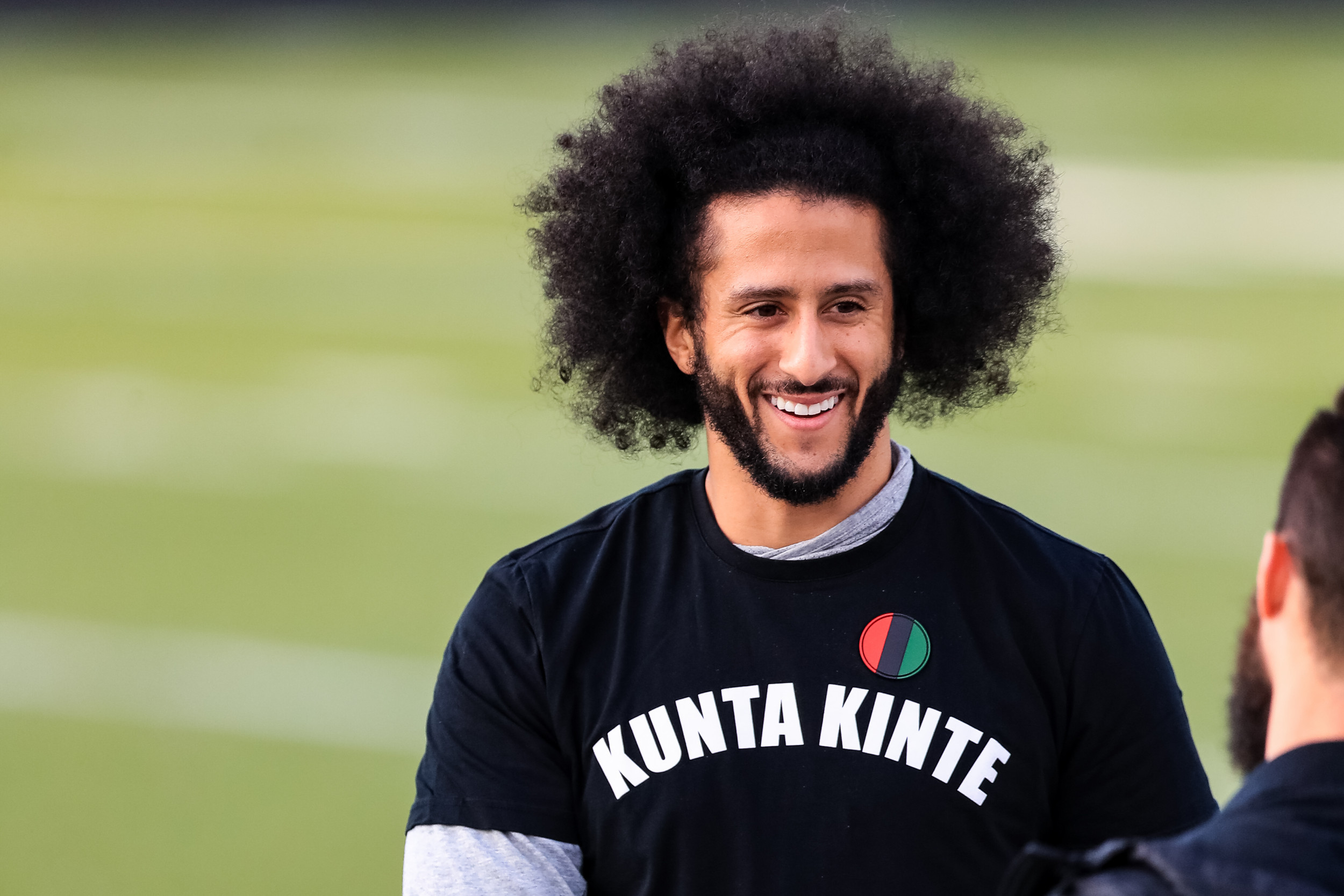Play all audios:
As the sports world debates on whether or not former NFL quarterback Colin Kaepernick should get another chance with a team, the President of the United States weighed in Wednesday on the
matter. President Donald Trump said he would "absolutely" support it. "If he deserves it, he should," Trump said in the Bleacher Report. "If he has the playing
ability. He started off great and then he didn't end up very great in terms of as a player." "So, his playing wasn't up to snuff," Trump continued. "The answer
is absolutely I would, as far as kneeling, I would love to see him get another shot. But obviously, he has to be able to play well. If he can't play well, I think it would be very
unfair." Kaepernick went 5-2 as a starter in 2012—his second year in the league—and then went 12-4 in 2013. But after that 17-6 start, he went 11-24 over the next three seasons,
including a dismal 1-10 record in 2016. It was the 2016 preseason when Kaepernick began his kneeling protest of police brutality. During the third preseason game, Kaepernick did not stand
for the national anthem, but rather sat on the bench. He gave his reasons during the post-game press conference. "I am not going to stand up to show pride in a flag for a country that
oppresses black people and people of color," Kaepernick said. "To me, this is bigger than football and it would be selfish on my part to look the other way. There are bodies in the
street and people getting paid leave and getting away with murder." Prior to the fourth preseason game, Kaepernick had a conversation with Army veteran Nate Boyer, who had been a long
snapper for the University of Texas. Boyer advised Kaepernick that kneeling would be less disrespectful to veterans than sitting, so Kaepernick's kneeling protest began. Other players
in the NFL followed Kaepernick's lead, and they, too, began kneeling protests. By the Fall of 2017, Trump made remarks while in Alabama that he was against players kneeling in protests,
and that they should be fired. "Wouldn't you love to see one of these NFL owners, when someone disrespects our flag to say, 'get that son of a bitch off the field right now.
Out. He's fired. He's fired," Trump said in 2017. And then in 2019, Trump back pedaled a little bit and said that if Kaepernick was good enough, then maybe a team should sign
him. "If he was good enough, they'd hire him. Why wouldn't he play if he was good enough? I think if he's good enough, I know the owners—I know [New England Patriots
owner] Robert Kraft, I know so many of the owners—if he's good enough, they'd sign him," Trump said. The president continued, "So I'd like to see it. Frankly,
I'd love to see Kaepernick come in, if he's good enough. But I don't want to see him come in because somebody thinks it's a good PR move." NFL commissioner Roger
Goodell this Monday said he believes that Kaepernick should have a chance to play on an NFL team, that is, if a team is willing to take a chance on him. "Well, listen, if he wants to
resume his career in the NFL, then obviously it's gonna take a team to make that decision," Goodell told Mike Greenberg on ESPN's "The Return of Sports" special.
"But I welcome that, support a club making that decision, and encourage them to do that. "If his efforts are not on the field but continuing to work in this space, we welcome him
to that table and to help us, guide us, help us make better decisions about the kinds of things that need to be done in the communities. We have invited him in before, and we want to make
sure that everybody's welcome at that table, and trying to help us deal with some very complex, difficult issues, that have been around for a long time. "But I hope we're at a
point now where everybody's committed to making long-term, sustainable change." Monday's statement by Goodell comes a a couple of weeks after the commissioner said the NFL
should have done a better job at listening to its players over the last three years. Even during that apology, Goodell never mentioned Kaepernick by name. The recent news comes three weeks
after George Floyd died on May 25 while in custody of the Minneapolis police. As a police officer knelt on Floyd's neck, Floyd could be heard screaming, "I can't
breathe." Floyd's death set off nationwide protests against not only his death, but against police brutality and social injustice, which were reasons Kaepernick began kneeling in
2016.

